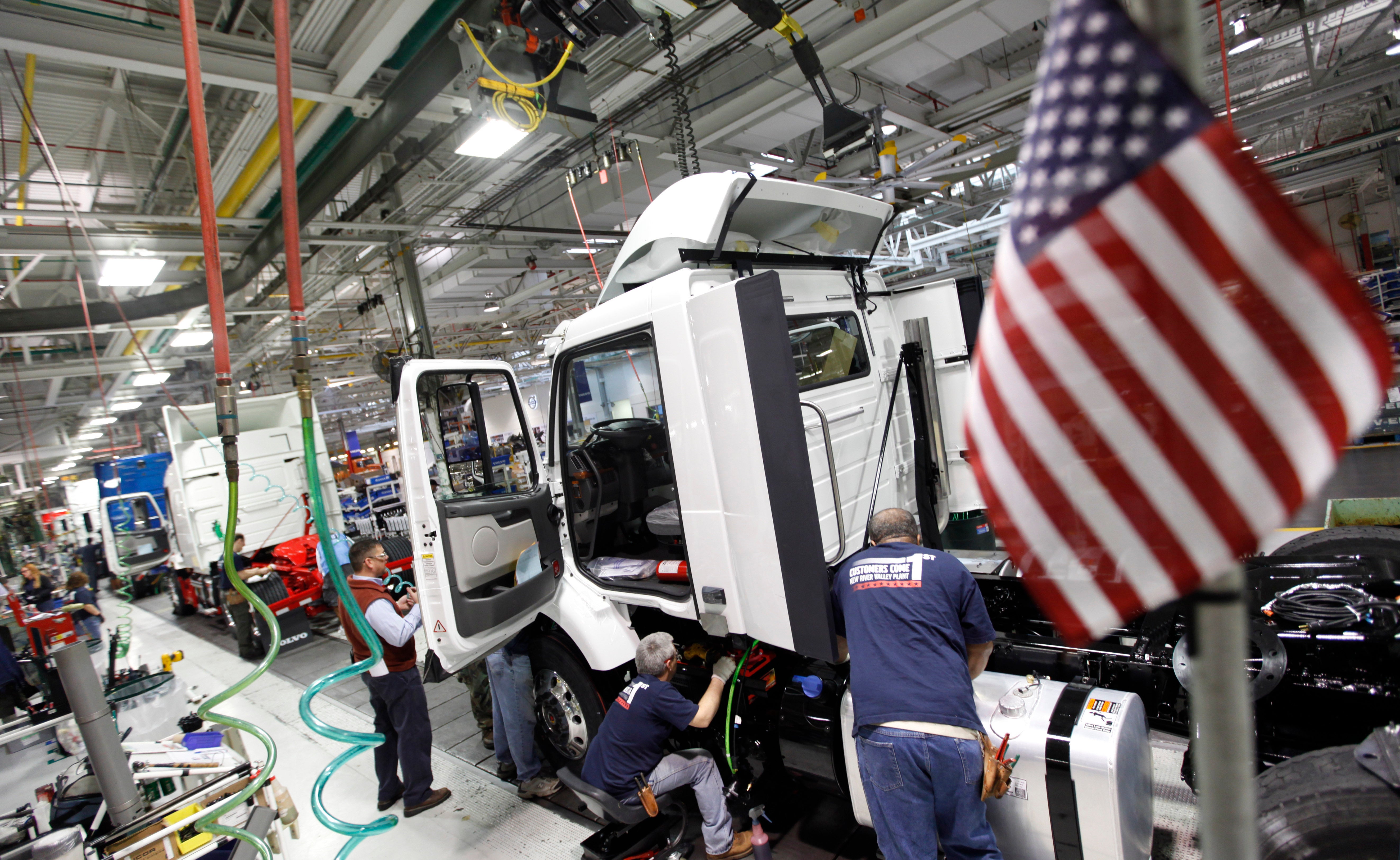UAW factory workers ratify deal, will end Volvo truck strike
Striking blue-collar workers at a Volvo heavy truck plant in southwestern Virginia have narrowly ratified what the company said was its final offer in a long labor dispute

Your support helps us to tell the story
From reproductive rights to climate change to Big Tech, The Independent is on the ground when the story is developing. Whether it's investigating the financials of Elon Musk's pro-Trump PAC or producing our latest documentary, 'The A Word', which shines a light on the American women fighting for reproductive rights, we know how important it is to parse out the facts from the messaging.
At such a critical moment in US history, we need reporters on the ground. Your donation allows us to keep sending journalists to speak to both sides of the story.
The Independent is trusted by Americans across the entire political spectrum. And unlike many other quality news outlets, we choose not to lock Americans out of our reporting and analysis with paywalls. We believe quality journalism should be available to everyone, paid for by those who can afford it.
Your support makes all the difference.Striking blue-collar workers at a Volvo heavy truck plant in southwestern Virginia have narrowly ratified what the company said was its final offer in a long-running labor dispute.
The hourly workers voted 1,147 to 1,130 for the six-year contract, and will suspend their on-and-off strike that began in April. However unionized salaried workers voted against the pact 45-40, according to the Facebook page of the United Auto Workers local.
Union spokesman Brian Rothenberg in Detroit confirmed that the totals are accurate. The UAW said in a statement that blue-collar members will return to work for their Sunday and Monday shifts.
About 2,900 workers represented by the UAW have been on strike at the Dublin Virginia, plant. They rejected three tentative contract agreements reached with local union negotiators, including the same contract that was ratified on Wednesday.
Ray Curry, UAW president, said in Wednesday's statement that the union has an established process to address concerns raised over the salary agreement that narrowly failed.
“The democratic process played out at Volvo Trucks," Curry said. “UAW Members stood together through their strike and now the overall agreement and hourly agreement have been ratified despite the company’s actions earlier in the week.”
Earlier in the week Volvo Trucks said it would put the third tentative agreement into effect and asked workers to cross picket lines so it could restart production. The union threatened to file an unfair labor practices complaint with the National Labor Relations Board. The union said only a few workers crossed the lines, and the company said it would take several days to resume production.
A copy of the third agreement shows workers with one year of experience would start at $20.60 per hour, progressing to a top wage of $30.92 when the contract ends in 2026.
The union said in its statement that the six-year agreement eliminates a second, lower tier of wages and provides protections around shift scheduling as well as a “major signing bonus and aggressive annual wage improvements.”
Franky Marchand, vice president and general manager at the Volvo Trucks plant, said in a statement that the agreement will provide employees with a continued “great quality of life" and ”will also help secure the plant’s long-term growth and sustainability."
"Our focus now will be on getting trucks to customers as quickly as we can, and strengthening our relationship with our employees,” Marchand said.
The defiant strikers could be a sign that workers feel more emboldened because employers are having a hard time finding skilled workers.
Experts say there is little fear of finding another job with companies scrambling to hire workers, so the gamble of a strike is not as severe.
Kristin Dziczek, senior vice president at the Center for Automotive Research, an industry think tank, said rank-and-file union members flexed their muscles in the labor dispute by rejecting two agreements endorsed by union leadership.
It shows members in future contract talks that the first or even second deals agreed to by union leaders can be improved, she said. “This changes the dynamic quite a bit. If members don’t see the first deal as the best they can get, then it’s a self-fulfilling prophecy,” she said. “Negotiators will counter by leaving some room to go back and sweeten the deal.”
Workers at Ford and Fiat Chrysler (now Stellantis) have rejected the first agreements in the past.
Volvo says the 1.6 million-square-foot (nearly 150,000-square-meter) Dublin plant is the largest manufacturer of Volvo trucks in the world. It is one of the largest private sector employers in the region, with about 3,300 employees, 2,900 represented by the UAW.
Volvo Trucks is a separate company from the Volvo Cars brand.